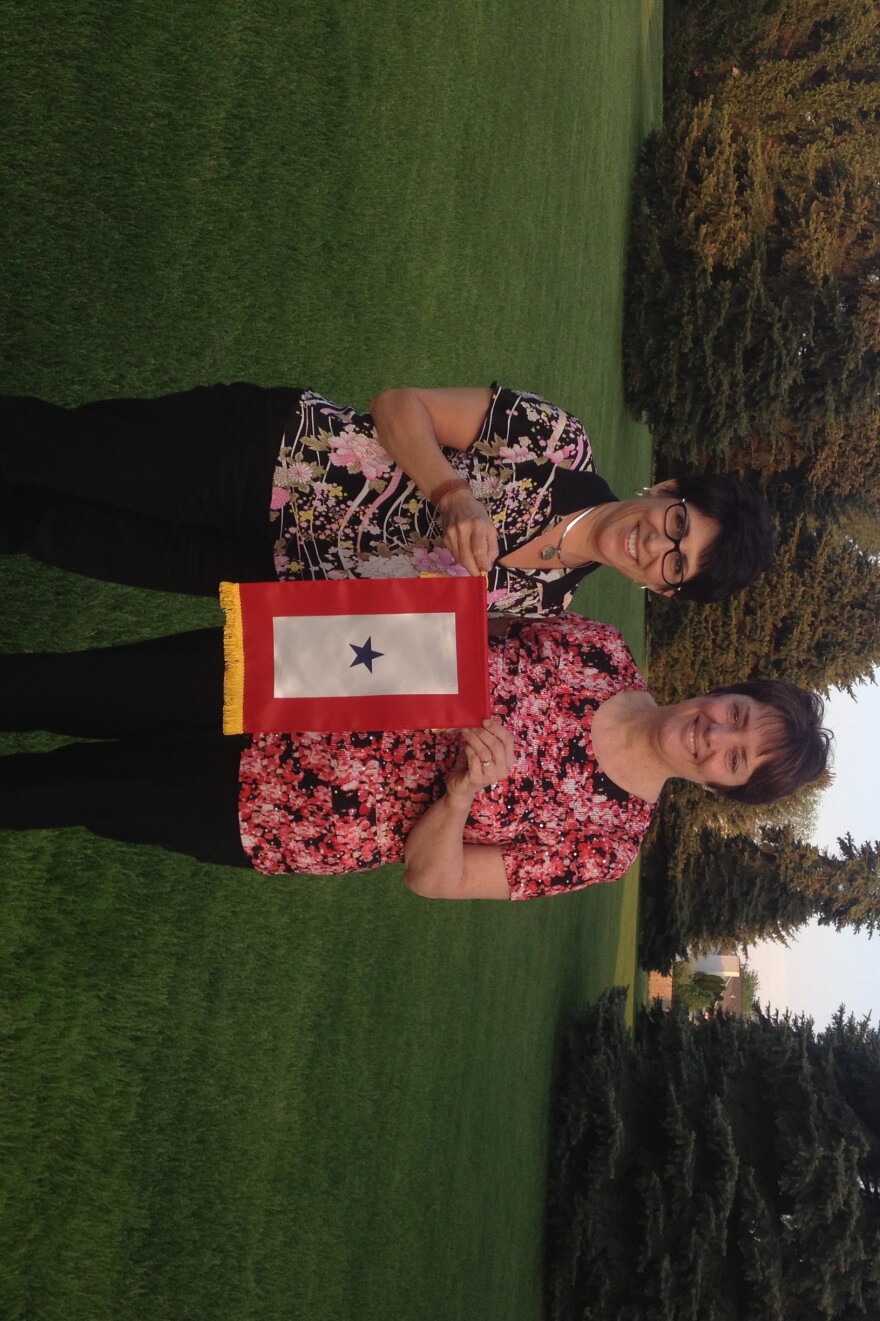Behind every deployed service-member there’s a family tending the home fires, waiting for a phone call from a son or daughter, a brother or sister, a husband or wife.
America’s wars in Iraq and Afghanistan are all but over, and by any measure, much has been sacrificed. Thousands have fallen in the line of duty and many more wear the scars of conflict. But often lost in the headlines are the sacrifices made by those who’ve seen a loved one off to a war-zone halfway around the world.
In their efforts to keep in touch with their loved ones, the families of troops deployed overseas often must live with near constant worry, praying for their safety, for a hasty return home. In a very real way, they've been deployed too.
A small flag with a blue star, the symbol of having a loved one deployed, hangs in a window of Anne Flanders’ Texas Township home. Her son Jason served eight months in Afghanistan, from last August to this April. So did Cecilia Mallette’s son, Mathew. In fact, both served together in the same U.S. Army unit, something Anne and Cecilia didn’t know until they met each other at meeting of the local Blue Star Mothers, a support network for families with loved ones deployed. Now close friends, the two women sit at the kitchen table, talking proudly about their sons. Cecilia was relieved when she met Anne.

“And then when we found out they were being deployed together, it was comforting for me to know, ok, I’ve got somebody else I know that’s going to go through this with me.”
Anne and Cecilia were there for each other during their sons’ time overseas. But they also dealt with those long months in private, gripped by a swirl of emotions: anxiety, concern, and fear, but also love and pride. When Cecilia, a teacher, turned on the evening news or scanned news sites, her senses were heightened. It’s hard for many around her to understand. Still, life goes on.
“It’s a constant feeling over you. You’re still at work, going through your day but constantly in my mind knowing I don’t know what’s happening to him at this moment. It could be great, it could be horrible.”
Cecilia has been through this before. Her husband deployed to Desert Storm with the U.S. Navy. She remembers standing on the pier in Virginia Beach, holding Mathew, then still a baby, waving goodbye, watching the aircraft carrier sail away. Going through it again is kind of surreal, she says.
“I felt like it was coming full circle. Would I ever have thought that 19 years later that you – you – this little one would be leaving and going away on your own deployment. I would never have dreamt that.”
The instinct to protect their kids is strong in Anne and Cecilia. So it was frustrating to not be able to intervene, to shield their boys if harm was close. A mother knows her child well and Anne needed to know that Jason was OK.
“I needed to hear his voice, I needed to see him. That was real important. And then I know. You know, the 'looks'.”
Technology made that easier. Gone are the days of weeks-old letters landing in the mailbox. Now Skype, Facebook and other social media help keep family ties strong, often in real-time. Sometimes Anne would take her laptop around the house, sending scenes of home life to Jason.
“And like at Christmas-time and Thanksgiving we put the computer there and said you’re sitting right there at the table. You’re in your spot…I’d go out and show him his jeep – looking good. The snow. We’d show him the snow. And then with the fall colors I’d show him down the street and he had all the guys come and say, ‘hey guys, there’s, you know, America.’”
Anne and her husband sent care packages; they got to know their son’s battle buddies the best they could; made certain to cancel any plans if Jason said he might be able to call at a certain time. If you have a loved one deployed, you make yourself available, she says.

Cecilia began recording her Skype sessions with Mathew. It was a way, she says, of creating a memento, a kind of record of her son’s experience. If he didn’t come home she’d still be able to hear his voice.
“I thought, if I have that from Mat, if something should happen I still have him. I don’t know if that makes sense. I wanted to have it for me, I wanted to have it for his sister, I wanted to have it for his dad. I just – I just wanted a piece of him.”
But Mathew is coming home. Cecilia will be able to hug her son. She wonders sometimes, however, what he will be like. She’s heard other mothers who had sons return home with the war still on inside them, struggling with post-traumatic stress.
“And I’m hopeful though that when he does come home that there’s enough of him that he’s able to cope, he’s able to get through. He’ll never…that part of deployment is always with us, so it’s gonna be with him ten times more than it is with me.”
Anne has already printed up “welcome home” signs for Jason and Cecilia has an app on her phone that counts down the time until Mathew returns. That time is getting pretty short. Both are at an Army base in Germany and are due back soon.
Anne and Cecilia will be at Detroit Metro airport on the day they fly home, when the circle of their sacrifice will be fully formed in a loving embrace of a soldier, a hero, and perhaps most important, a son.
“I’m very proud of my son. Very proud of my son, and can’t wait to see him.”



